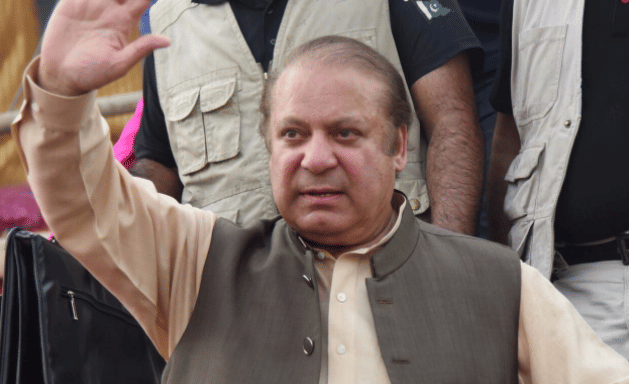In this excerpt from Reham Khan’s autobiography, she writes on how Imran Khan was ‘95%’ sure that Nawaz Sharif would have to step down for rigging elections.
On Pakistan’s Independence Day, the 14th of August, PTI had decided to launch the Azadi March (Freedom March), in order to protest against the systematic election rigging that they were accusing PMLN of executing. Together with another group, the Pakistan Awami Tehreek (party of the people) led by Canadian cleric Tahir ul-Qadri, a large group would travel from Lahore to Zero Point in Islamabad (near the PM House) and cause disruption in the capital. It was kind of like an extended version their usual rallies and jalsas. The stated aims were to secure the dismissal of the government and the resignation of Prime Minister Nawaz Sharif, electoral reform, the elimination of corruption, and a snap election. Imran Khan and the leadership travelled in the large ‘Azadi Bus’, followed closely by party supporters on cars and bikes.
July was the month of change. That was what came to be understood, as anticipation for the major ruling by the judiciary in favour of PTI and the expected gains for Imran reverberated through the house. The Judicial Commission had been formed under a Presidential Ordinance on April 3rd on PTI’s request, to investigate allegations of rigging during the 2013 general elections. Months of investigation, countless testimonies, and endless back and forth between PTI and PMLN had led to this moment. There was an air of something like positivity around the house, although it could have just been entitlement and delusion. Sahir told me about one of the most in-depth conversations he and Imran had ever had. They’d been sat for breakfast one day, and Imran had been upbeat and confident of victory. “He told me that there is a 95% chance that there will be overwhelming evidence of rigging, and fresh elections will be called,” Sahir recounted incredulously. “He was that confident”. Imran put the other 5% down to other positive outcomes, like Nawaz Sharif being forced to resign through a judicial action. Imran was confident that he’d finally be given his rightful place. The conversation did not make any sense to Sahir. When Sahir asked what made him so sure, he had just gestured up at the ceiling and said Allah had given him strong signs, as if that would clear everything up. I don’t think any of us were expecting elections, or for anyone in the house to suddenly be handed power the next day. But we certainly were eager to see what would happen, and whether Imran’s desires would be fulfilled.
The post-Panama Nawaz Sharif was actually getting more popular. Now abandoned by friends and the old guard, he and his daughter had decided to behave like their party symbol. The lions were roaring back, louder than ever before. The internal party fragmentation never happened. The maligning tactics had failed. In fact, the political engineering by the establishment had ended up giving Nawaz’s daughter the best possible launch pad into politics. These were unintended consequences, but the public were rallying with their cause. Nawaz Sharif was free to say whatever he wanted now that he was banned for life from holding political office. Unshackled, he became more volatile than ever. He had been an elected PM thrice but he gained even more respect and admiration for his resistance.
 This is an excerpt from Pakistani journalist Reham Khan’s autobiography. The book is published by SK Publishing Ltd.
This is an excerpt from Pakistani journalist Reham Khan’s autobiography. The book is published by SK Publishing Ltd.






